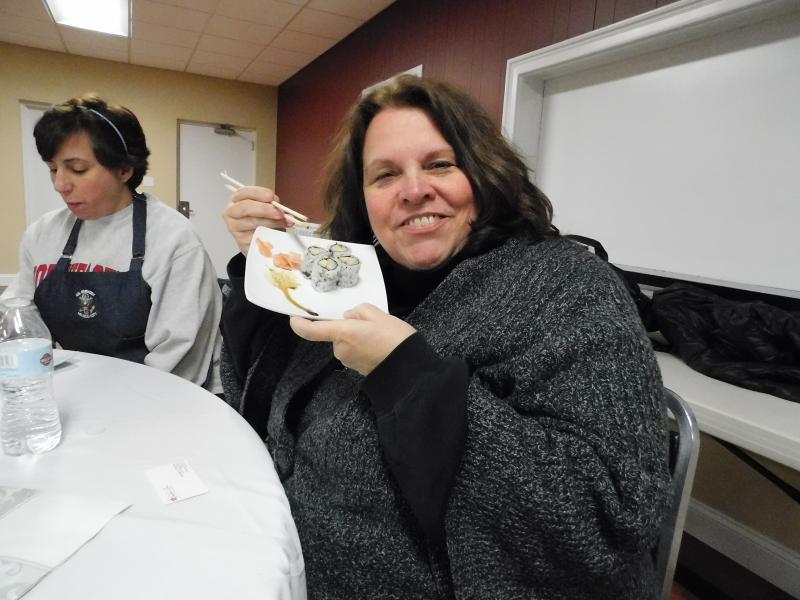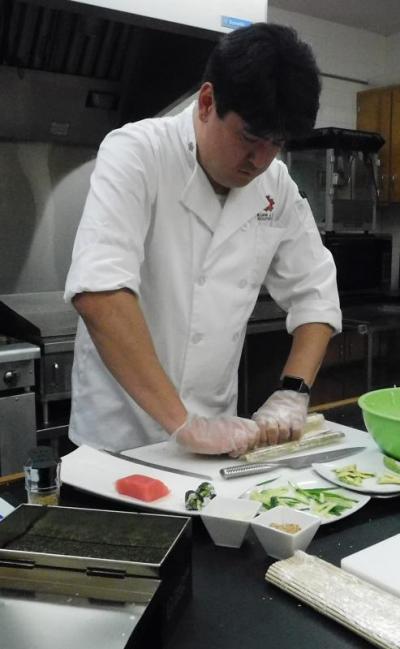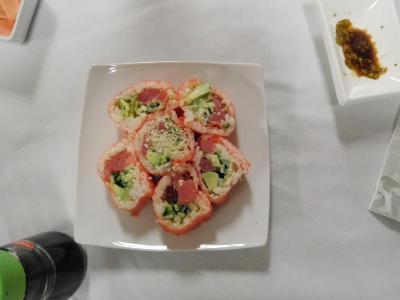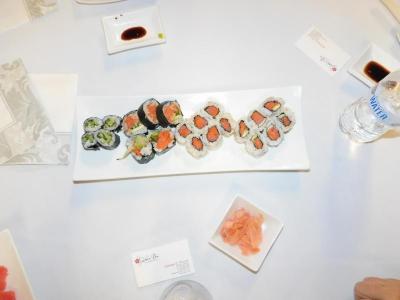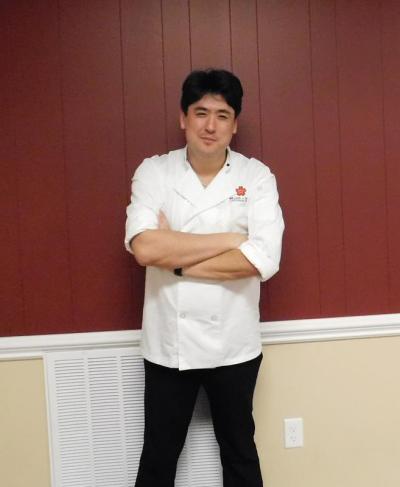Rolling into sushi success
William Foley, an Executive Sushi Chef, guided students through arranging the ingredients in their sushi roll so it would roll up well during a sushi making class on Jan. 15.
The class, held through the Dartmouth Cultural Center, took place in the kitchen at St. Mary’s Church.
Participants learned how to make a California roll, crab salad, spicy tuna maki, and futo maki, along with some basic sushi history and etiquette.
Sushi is a combination of two words, meaning vinegar and rice. All sushi rice is combined with rice vinegar, with some sugar mixed in to cut the vinegar flavor-- although many people buy seasoned vinegar that can be used straight.
Sashimi is a word meaning pierced fish, and it is a food that dates back to Japanese fishermen who would pike a fish and slice it off the pole to eat raw. Nigiri, a slice of raw fish over rice, is named for the way chefs will press the two ingredients together with two fingers.
Maki, which means roll, is what most people picture when they think of sushi: ingredients combined with rice and nori (dried seaweed) and wrapped into a roll.
Hosoi is a thin roll with one ingredient. Kappa is a roll with just cucumber, and is one of the most traditional types of maki. It is named after a mythical swamp monster with a notorious appetite for cucumber. Tekka is a plain tuna roll.
Futo maki, the other kind of roll Foley taught students, is means “fat roll,” and is one with many ingredients.
Foley also taught some sushi etiquette. The pickled ginger served with sushi is meant as a palate cleanser, not to be eaten with or on top of sushi. Also, it is considered rude to drench sushi in soy sauce as it masks the taste.
The participants in the class were surprised by how simple Foley made the sushi-making process, and felt like they could make sushi at home and comfortably serve it to friends and family.
Foley has been working in restaurants and catering for his whole career, but initially started out with the very different goal of being a forensic pathologist. He was working in a restaurant to get through school and had a realization.
“I realized I liked people too much to be a forensic pathologist,” Foley said. “Catering is my way of expressing my feelings and my passion.”
He also loves the opportunity to be creative with the food he makes. His signature roll at the Waterfront Grille in New Bedford was the “Devil’s Inferno:” a spicy lobster roll topped with spicy crab salad.
Foley combines his skills in both French and Japanese cooking at his catering company, Sakura Bon, and hopes to open a restaurant in the next few years.
Foley will teach the sushi making class again on Feb. 26. For more information on this workshop and other classes, go to www.dartmouthculturalcenterinc.org.
For more information about Foley’s catering company and sushi classes, go to www.sakurabon.com or email william@sakurabon.com.



